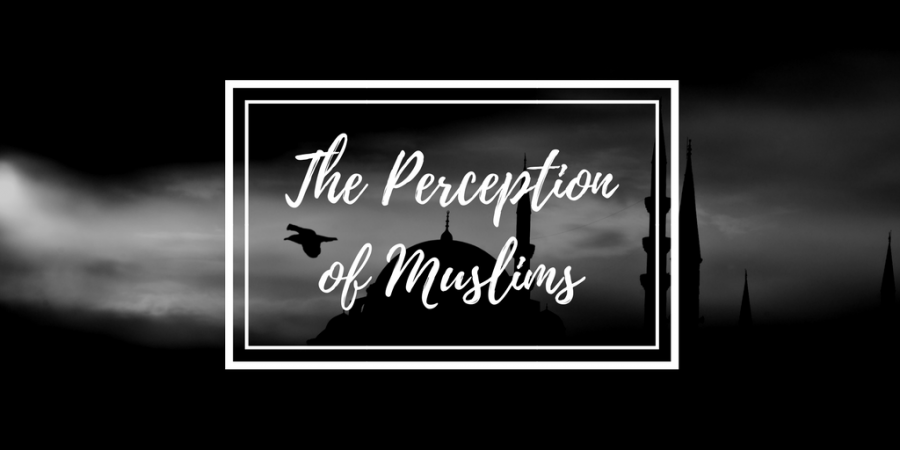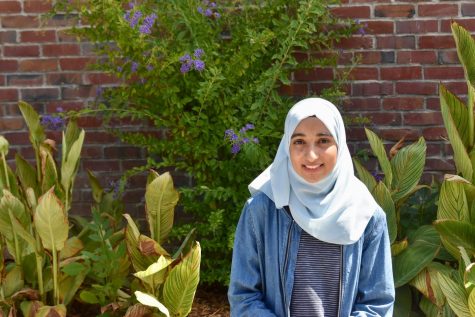The perception of Muslims
October 29, 2017

In World Core, we watched a mini documentary called “30 Days: Muslim and America” about a Christian man who “became” a Muslim for 30 days. He performed close to everything an average Muslim would do — pray five times a day, read the Qu’ran and attended Friday prayers, as well as not drinking alcoholic beverages and not eating pork. And those 45 minutes we spent in class watching the video were probably the worst 45 minutes of my life.
The purpose of the documentary was to show that Islam is not a religion that promotes terrorism, but I personally think it was an inaccurate representation of what the religion teaches. The same thoughts repeated over and over in my mind while watching the video was, “Is this really what people think my religion is like?”
Before anyone misunderstands, I’m not writing this to say that I dislike someone of another religion learning about mine. I encourage the act of learning about other religions or cultures, but I am writing this to express my discomfort about my peers watching a video about my religion and then perceiving me and other Muslims a certain way because of what they learned from what we watched in class.
In short, I disliked the documentary more than I found it insightful. I don’t speak for all Muslims, but watching it made me uncomfortable for a couple of reasons. I remember walking into class, seeing “Watch ‘30 Days: Muslim and America’ Documentary” under the agenda for the day and already afraid about how my religion would be portrayed, due to it already being the target of negative comments about terrorism. While watching the video, I was self-conscious and felt as though everything that was being said in the video, from why I pray five times a day to why I wear the hijab, was supposed to be a representation of my beliefs, when in actuality, the reason people are committed to the religion is a personal connection.

There was one scene in particular that really stuck with me. The Christian man in the video wasn’t comfortable with praying at first, which I get. If you’re devoted to another religion, it’d be difficult to adjust to the practices of another. He consulted an Imam for help — an Imam is to Islam as a priest is to Christianity — but the Imam avoided his question and told him the way he was sitting, with his foot crossed onto his leg, was disrespectful. I couldn’t help but sink into my seat in embarrassment. I didn’t want people to think that Islam isn’t welcoming and that Muslims will judge the way you sit if you come asking about the religion.
Of course, I’m sure this wasn’t the intention of the documentary. It was made to show that we’re not associated with terrorism, but didn’t do a very good job of portraying Islamic teachings. I criticize videos like the documentary we watched because I’m sitting among a group of people who don’t know much about Islam already, other than what’s being portrayed in the media. Even though its technical information was somewhat correct, the execution wasn’t the best. People will think they learned about Islam, but there were still some embedded undertones that shows Islam as limiting in terms of what was shown.
When I expressed this discomfort to a friend of mine in the same class, she didn’t understand me. “Why?” she asked, when I told her about how I felt. I looked at her confused before I realized that she was genuinely curious. The one word inquiry made me realize that she didn’t see what was wrong with the video because that’s probably how she expected my religion to be like anyway. While watching the video, I felt general glances in my direction, or people avoiding my gaze, as if they didn’t want to make it obvious they were associating me with what we were watching.

The bigger picture is that because of what the media already shows, people wouldn’t think that it’s strange if Islam promoted restricting values, even though it’s a misrepresentation. Even though the video itself may have showed a narrow minded perspective of Islam, it did serve its purpose of debunking the thought that Muslims are terrorists. The Christian who participated in the documentary was able to discern that Islam isn’t a religion that promotes violence, but a religion of peace.
I don’t want people to think that I’m being oppressed for wearing the hijab. I don’t want people to think that I’m banned from going to parties or having a good time in general. Muslims are normal people, but we just happen to find value by following a different set of rules which aren’t negatively limiting at all. Islam is a religion of self love and respect and I’m proud to represent that.


















